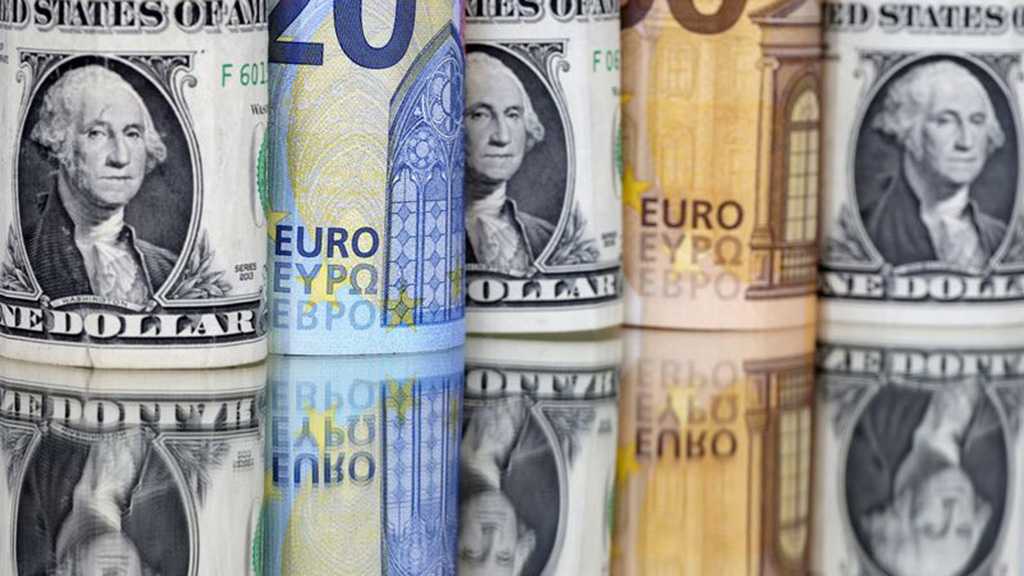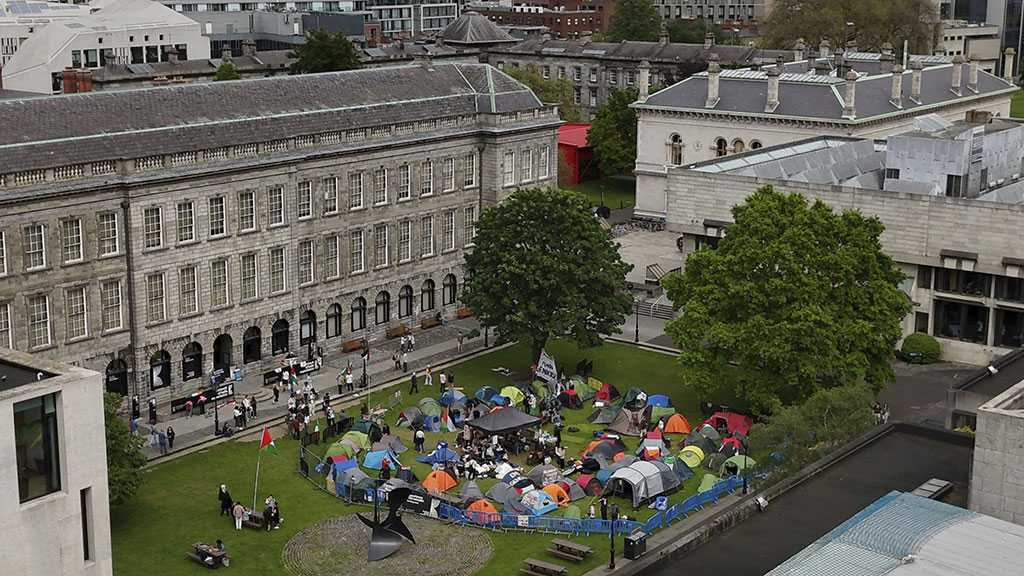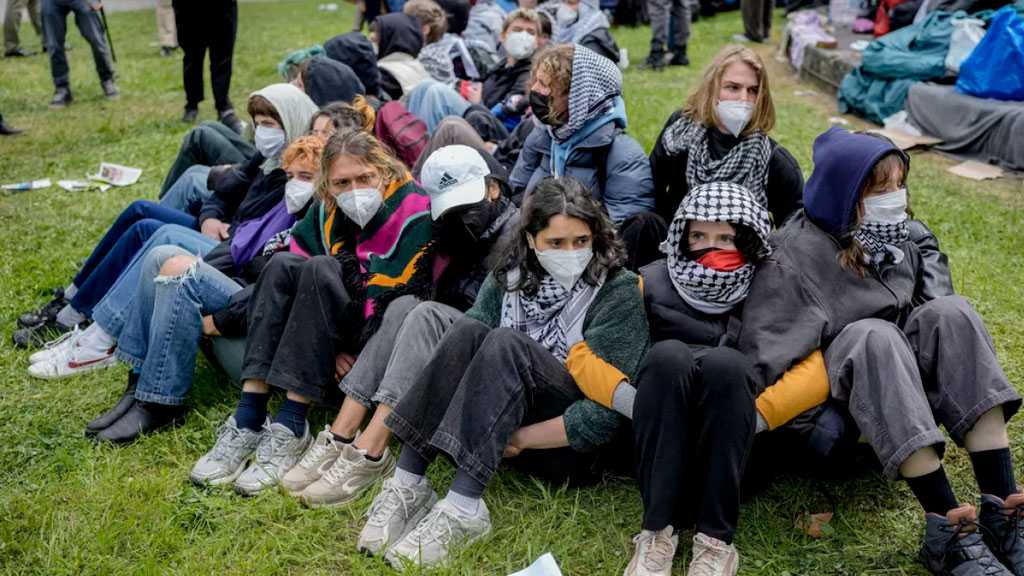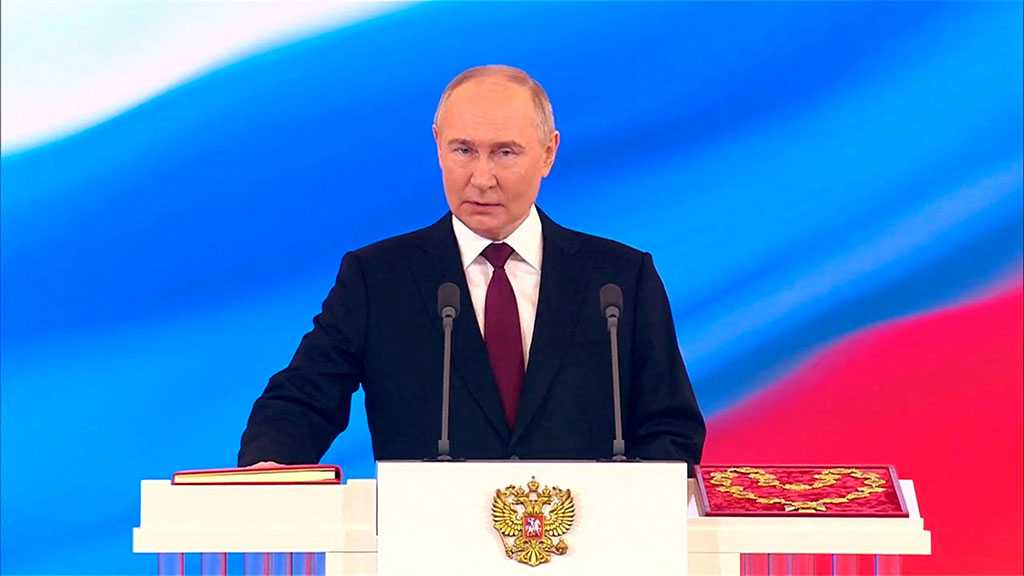
Euro Hits 20-Year Low and Gas Prices Jump on Russian Pipeline Shutdown

By Staff, Agencies
The euro dropped on Monday to a new 20-year low after Russia’s decision to shut a major gas pipeline to Europe intensified the energy crisis that has dealt a heavy blow to the region’s economy.
The common currency fell as much as 0.7 per cent to $0.988 in London trading, the lowest level since 2002. European stocks also fell, with the regional Stoxx 600 index down 1 per cent, Germany’s Dax off 1.7 per cent and France’s Cac 40 down 1.8 per cent. London’s FTSE 100 slipped 0.7 per cent.
In energy markets, Dutch TTF gas futures, the benchmark European contract, jumped 30 per cent to €272 per megawatt hour, rising back towards all-time highs hit above €340 just under two weeks ago.
The fresh price rise comes as European capitals struggle to contain growing concerns over Russia’s “weaponization” of gas supplies to the continent.
European countries including Sweden and Finland raced over the weekend to provide government funding for utilities struggling with sharply heightened collateral requirements on exchanges, warning that without intervention energy markets could seize up and potentially threaten the wider financial system.
The UK energy sector has warned electricity generators may also need government support, with Liz Truss or Rishi Sunak set to be announced as prime minister later on Monday following the conclusion of the Conservative party leadership campaign. Sterling was down 0.3 per cent to $1.1476 in recent trading.
The volatile start to the week came after Russia indefinitely suspended natural gas flows through the Nord Stream 1 pipeline, further throttling Europe’s energy supplies and heightening recessionary risks in the bloc. State-owned Gazprom said the suspension was due to a technical fault.
“This was long a scenario dreaded by markets and priced with some probability, but seems to have become a reality now,” said analysts at RBC Capital Markets in London.
Russia’s announcement to indefinitely shut the pipeline came just hours after G7 countries announced plans to move ahead with a price cap on Russian oil exports in an attempt to reduce revenues flowing to Moscow that could be used to fund its invasion of Ukraine.
Analysts said the latest twist in the energy crisis would raise the stakes for European Central Bank policymakers who are set to meet later this week. Several big investment banks, including JPMorgan, Bank of America and Goldman Sachs, said last week they expected the central bank to lift rates by 0.75 percentage points, the biggest increase since 1999, as they battled record inflation. While the rise in gas prices could worsen the inflation situation, it also darkens the outlook for economic growth.
How would a G7 price cap on Russian oil work?
“The ECB’s task is greatly complicated by uncertainty over Russian gas supplies,” said Brian Martin, head of G3 economic research at ANZ. “Moscow’s decision not to restart gas flows via the Nord Stream pipeline raises downside growth risks while increasing the inflation outlook.”
The euro hit parity with the dollar in July for the first time in 20 years as investors sought haven assets in a worsening global economic environment.
Markets in Asia were focused on tightening COVID-19 restrictions in China, where a host of cities are under lockdown following outbreaks of the virus. Hong Kong’s benchmark Hang Seng index fell 1.2 per cent, while the CSI 300 index of Shanghai and Shenzhen-listed stocks shed 0.4 per cent.
Wall Street stock futures made slight gains, with those tracking the broad S&P 500 index up 0.4 per cent and futures for the Nasdaq 100 adding 0.3 per cent. US markets are closed on Monday for the Labor Day holiday, meaning trading volumes in these contracts are expected to be very light, leading to increased volatility.



